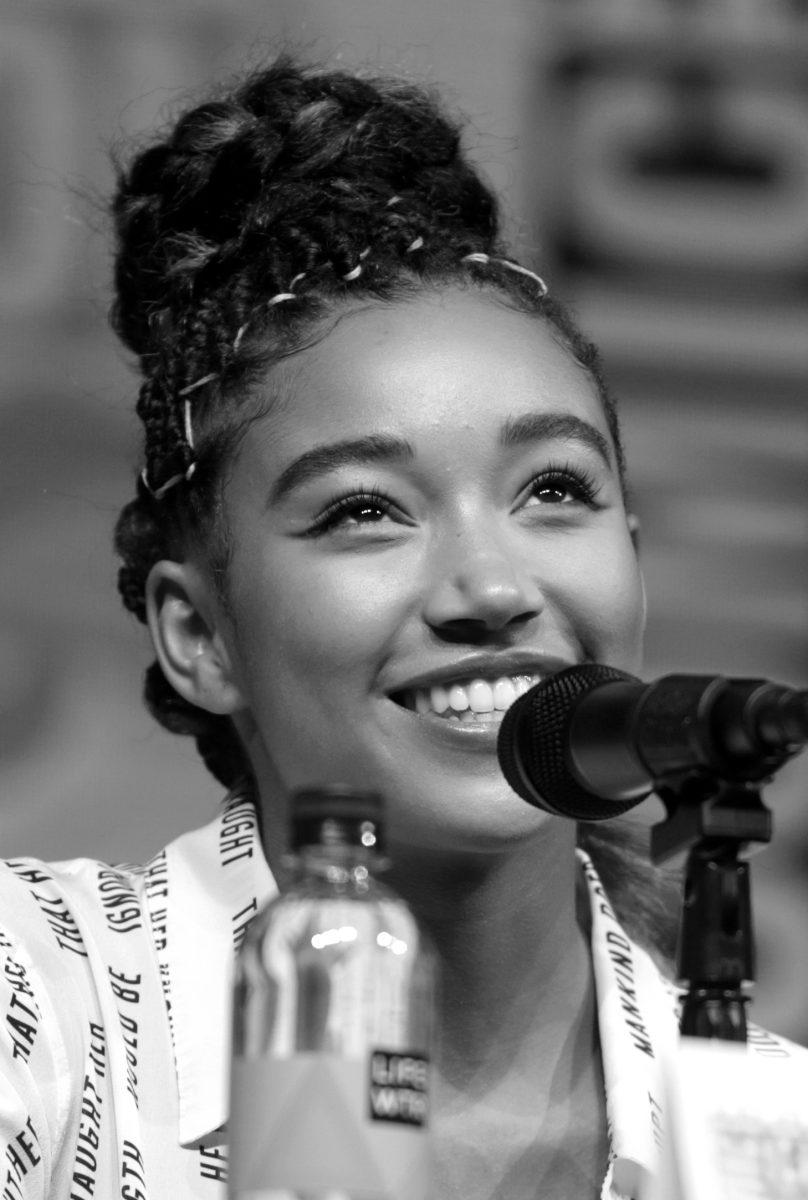Photo courtesy of Gage Skidmore | “The Hate U Give” actress Amanda Stenberg at 2018 San Diego Comic Con.
By Ryan Loo ’21
THE ROUNDUP
“The Hate U Give” (“THUG”) beautifully highlights the harsh reality combated by black people in America, honing in on the perpetual struggle to justify their very right to live and exist.
“THUG” begins the film with a significant scene that many blacks have partaken in –– the talk. No, not the sex talk or drug talk, but one that’s unique to the black struggle, the police talk.
In the film, Maverick ‘Mav’ Carter (Russell Hornsby) sits his kids down and tells them what to do in the scenario that a cop pulls them over. He instructs that they keep their hands on the dash at all times, respect the officer, but to always know their rights, or else they risk their lives.
This scene sets the tone for the rest of the film to follow: a painfully brutal yet beautiful and realistic depiction of modern day America and the realities of many of its African-American citizens.
This powerful film follows Starr Carter (Amandla Stenberg) in a well-executed coming of age story intertwined with that of deep societal issues that loom over our society today.
After the death of her childhood friend, Khalil, Starr struggles to find her voice and speak out for his justice.
One of the film’s most interesting and unique traits lies nestled in Starr’s double-life. Author Angie Thomas and director George Tillman create a fascinating clash of two realities in Starr’s character.
Starr holds the interesting duality of growing up in a largely impoverished, black neighborhood of Garden Heights, but attending a rich, private, predominantly white school of Williamson Prep.
This stark contrast allows for Starr’s dynamic character to take shape and leaves room for her to discover her much needed voice in a time of political turmoil.
This dynamic clash of poverty and privilege creates a thought-provoking film about the injustices that divide our communities and gives a deep insight on how different economic upbringings can escalate racial tensions.
Angie Thomas’ ability to intertwine deep societal issues, ranging from drugs to garden variety racism, into her characters’ everyday social interactions produces a miraculous film that seamlessly portrays an even balance of entertainment and the deeper gravity of the situations at hand.
One such moment can be found in Starr and her friend, Hailey’s (Sabrina Carpenter), falling out. The argument stemmed from Hailey’s expression of sympathy for the cop that murdered Khalil, yet lack of sympathy for the actual victim.
In the heated exchange, Starr comes to realize that Hailey’s perception revolves around Hailey’s fear of one’s very blackness as a threat. Starr has become the “exception.”
This scene strikes a chord with many African-Americans that I know who have the experience of being surrounded in a predominantly white surrounding. Though they may be treated well at work, in their social circles, and with friends, this feeling of amiability does not transfer to other black people.
These African-Americans are simply seen as an exception to the typical African-American “poor,” “thug,” or “violent” stereotype.
Moments like this are not only used to teach Starr something, but also provide the viewer with the ability to learn something as well.
“The Hate u Give” is a film to be reckoned with and demands its viewers’ full attention. “THUG” gives off a deafening call for an end to police brutality rather than a semblance of justice (or lack thereof, as seen in the scarcity of police indictments in many recent officer-related shootings.)
This political film makes its progressive stance clear with pointed jabs at white privilege, the deeply entrenched systemic racism in our justice and legislative systems, and its striking resemblance to many recent shootings of unarmed black men in America and the nightmare of watching their murderers walk free, sans punishment or any repercussion.
George Tillman Jr.’s adaptation of Angie Thomas’ award-winning novel truly captures the black struggle, pain and frustration of these racially motivated shootings and white America’s complete disregard of this issue.
The Hate U Give succeeds in its daunting task to address many critical issues that threaten our society today. The film leaves advocacy for these issues in the hands of our youth, portrayed through Starr, in hopes that our youth will take up the torch and lead us into a new era of peace, understanding, and bridge the racial divide in our communities.





















